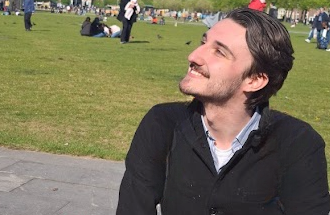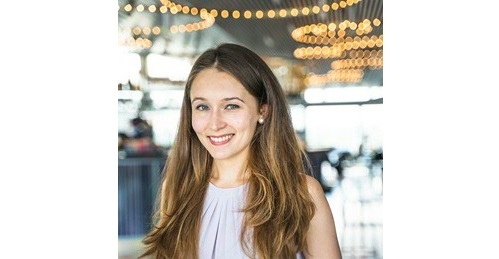
One world, 8 billion people, 193 UN member states, over 6,000 (Non-)Governmental Organizations, 1,000s of multinationals, all tied up in complex processes of dis/integration, cooperation and conflict.
International Relations as a discipline has a long history that involves questions of war, peace, power politics, colonialism, empire, race, and identity. IR in Europe started as an interdisciplinary project, and IR in Groningen still follows this tradition.
International Relations and International Organization, a track of the Master's in International Relations, offers a comprehensive study in theory and practice. Theretofore, IRIO uses a 'self-service' model. Besides the mandatory course on advanced theory, capita IRIO and the master thesis, you can select from specialized research seminars in five essential areas of Internationals Relations: International Security, International Political Economy, European Politics in a Global Perspective, Geopolitics & Connectivity and East Asian Studies . Moreover, to prepare for an international career you can organize a placement at a public or private organization in the field of international relations, where you can apply your knowledge and skills in a 'real-time' environment.
The Master's track IRIO offers: (a) flexibility in the selection of courses, enabling students to design a study programme tailored to their needs and interests; (b) a research-led and policy-oriented curriculum taught by a committed staff; (c) reserves room for a career-oriented placement that excellently prepares graduates for the labour market and (d) provides an excellent preparation for a variety of positions related to the broad field of international relations.
The Master's degree programme International Relations is 60 ECTS. During your first semester, you take the module Advanced Theory and Research Practice in International Relations. This module must be followed by all students. In addition, you choose two Research Seminars (from five essential areas of IR: East Asian Studies, Int. Security, IPE, Eur. Politics in a Global Perspective, and Geopolitics & Connectivity) and you complete the specialization course Capita IRIO.
| Semesters | ||||
|---|---|---|---|---|
| CoursesCourse Catalog > | 1a | 1b | 2a | 2b |
| Advanced Theory and Research Practice in International Relations (5 EC) | ||||
| Capita IRIO (5 EC) | ||||
| Research Seminar 1 (10 EC) Example: - Politics of Natural Resources - Race, Class and Gender Internsectionality | ||||
| Research Seminar 2 (10 EC) Example: - Medical Humanitarianism in Global Politics - Human Rights, Democracy and Peace | ||||
| Master's thesis IRIO (20 EC) | ||||
| Master's Placement (10 EC, optional) | ||||
| Professionalization Electives (10 EC, optional) Example: - Career Seminar: Working in and on Governance; - Project Proposal Writing | ||||
| Programme options |
|---|
| Master's placement (specialization) A placement is a recognised component of this Master's track. It is your responsibility to find a placement yourself, but the Office for Student Affairs can offer help with this where necessary. |
| Specific requirements | More information |
|---|---|
| previous education |
Students with a Bachelor's degree in International Relations and International Organization from the University of Groningen or from another Dutch university, students with a Bachelor's degree from the University of Groningen in European Languages and Cultures (Profile Politics & Society) who started in 2016 or later, and students with a BA in International Relations and International Law (IRIL) from University College Groningen (if they have completed the following set of courses: International Relations Theories (and Practice) (5 ECTS), International Politics (5 ECTS), Statistics 1 (5 ECTS), Two of the following three qualitative methods courses: Qualitative Data Collection & Analysis (5 ECTS); Interpretive Methods (5 ECTS); Advanced Argumentation and Critical Thinking (5 ECTS)) have direct access to this track through the IR Admissions Board. Please use this application guide for your specific application procedure: https://www.rug.nl/let/how-to-apply-MA Students with a University of Groningen Bachelor's degree in:
who have completed a Faculty Minor in International Relations will also be admitted to this Master's track on that basis. Students from a similar field (which is not mentioned above) or those with a different educational background, for example Political Sciences, American Studies, History, European/International Law or International Economics, must submit a request for admission to the Master's degree in International Relations to the Admissions Board. The Board may decide to decline the request due to an insufficiently internationally orientated Bachelor's degree, or to admit the applicant to (parts of the pre-)Master programme. Please use this application guide for your specific application procedure: https://www.rug.nl/let/how-to-apply-MA After you complete your application, the IR Admissions Board will assess whether your educational/academic background meets the specific programme requirements, and will consider the level and curriculum of your previous studies. The Admissions Board will then determine whether:
|
| language test |
Additional requirements English: A VWO diploma or a subject certificate for VWO English (mark 6 or higher), minimum requirement of TOEFL iBT 90 (with a minimum of 21 on all items), or IELTS 6.5 (with a minimum of 6 on all items) or Cambridge C1 Advanced or C2 Proficiency. If you have a VWO diploma a language test is not required. |
| Study programme | Organization | Transition |
|---|---|---|
| All Universities of applied sciences |
Via a pre-master More information:with a HBO Bachelor's degree certificate with an international profile and/or knowledge of social sciences, for example Political Sciences, American Studies, History, European/International Law or International Economics and an IRIO pre-master |
| Study programme | Organization | Transition |
|---|---|---|
| International Business | University of Groningen |
Via a pre-master More information:with an IRIO pre-master |
| Sociology | University of Groningen |
Via a pre-master More information:with an IRIO pre-master |
| European Languages and Cultures | University of Groningen |
Additional requirements More information:If you started the BA programme in 2016 or later, with the profile Politics and Society OR with an IRIO faculty minor/ pre-master |
| American Studies | University of Groningen |
Additional requirements More information:with an IRIO faculty minor or pre-master |
| Media Studies | University of Groningen |
Additional requirements More information:with an IRIO faculty minor or pre-master |
| Frisian Language and Culture | University of Groningen |
Additional requirements More information:with an IRIO faculty minor or pre-master |
| History | University of Groningen |
Additional requirements More information:with an IRIO faculty minor or pre-master |
| Middle Eastern Studies | University of Groningen |
Additional requirements More information:with an IRIO faculty minor or pre-master |
| Communication and Information Studies | University of Groningen |
Additional requirements More information:with an IRIO faculty minor or pre-master |
| Liberal Arts and Sciences | University of Groningen |
Additional requirements Additional requirements:
with a specialization International Relations and International Law, and a number of required courses (see below) |
| Psychologie (NL) | University of Groningen |
Via a pre-master More information:with an IRIO pre-master |
| Study programme | Organization | Transition |
|---|---|---|
| American Studies | All Research universities |
Via a pre-master More information:with an IRIO pre-master |
| History, History (part-time) | All Research universities |
Via a pre-master More information:with an IRIO pre-master |
| Political Science | All Research universities |
Via a pre-master More information:with an IRIO pre-master |
| International and European Law | All Research universities |
Via a pre-master More information:with an IRIO pre-master |
| International Relations and International Organization | All Research universities | No additional requirements |
| Type of student | Deadline | Start course |
|---|---|---|
| Dutch students | 15 August 2026 | 01 September 2026 |
| 15 January 2027 | 01 February 2027 | |
| 15 August 2027 | 01 September 2027 | |
| EU/EEA students | 01 May 2026 | 01 September 2026 |
| 15 October 2026 | 01 February 2027 | |
| 01 May 2027 | 01 September 2027 | |
| 15 October 2027 | 01 February 2028 | |
| non-EU/EEA students | 01 May 2026 | 01 September 2026 |
| 15 October 2026 | 01 February 2027 | |
| 01 May 2027 | 01 September 2027 | |
| 15 October 2027 | 01 February 2028 |
| Specific requirements | More information |
|---|---|
| previous education |
Students with either a Bachelor's Degree in Social Sciences (including - but not limited to - Economics, Political Science, Development Studies, Psychology, Sociology, Social Geography), or an internationally oriented Bachelor's degree such as International Relations, Regional Studies, European/International Law, or (Modern) History can submit an application to the IR Admissions Board. Please use this application guide for more information regarding your eligibility and your specific application procedure: http://www.rug.nl/let/how-to-apply-MA After you complete your application, the IR Admissions Board will assess whether your educational/academic background meets the specific programme requirements, and will consider the level and curriculum of your previous studies. The Admissions Board will then determine whether:
|
| language test |
Additional requirements English: A VWO diploma or a subject certificate for VWO English (mark 6 or higher), minimum requirement of TOEFL iBT 90 (with a minimum of 21 on all items), or IELTS 6.5 (with a minimum of 6 on all items) or Cambridge C1 Advanced or C2 Proficiency. |
| Type of student | Deadline | Start course |
|---|---|---|
| Dutch students | 15 August 2026 | 01 September 2026 |
| 15 January 2027 | 01 February 2027 | |
| 15 August 2027 | 01 September 2027 | |
| EU/EEA students | 01 May 2026 | 01 September 2026 |
| 15 October 2026 | 01 February 2027 | |
| 01 May 2027 | 01 September 2027 | |
| 15 October 2027 | 01 February 2028 | |
| non-EU/EEA students | 01 May 2026 | 01 September 2026 |
| 15 October 2026 | 01 February 2027 | |
| 01 May 2027 | 01 September 2027 | |
| 15 October 2027 | 01 February 2028 |
Upon graduation students hold a (60 ECTS) MA degree in International Relations with a track in International Relations and International Organization from the University of Groningen. The Master programme in International Relations prepares its students for professions and research careers where knowledge of international-political developments and the ability to analyze and assess complex issues and to form grounded judgements are relevant.
During the programme you will complete an internship: this will provide you not only with an insight into the job-market, but also further develop your professional skills as well as expand your network.
Many graduates become policy advisors for national governments, NGOs, and international organizations in international politics. An increasing number of graduates also use their analytical skills to advise international businesses, or work as lobbyists, international executives, press officers, journalists, and researchers.
Alumni of the International Relations and International Organization track work at:
Government:
Business:
Communication:
Lobby:
Research:
Research conducted within the Department of International Relations and International Organization takes mostly place within the context of one of the four other specializations: Global Governance, International Security, European Integration and International Political Economy. We kindly direct you to those sites to get an impression of the research activities of the Department.
For more information about the IR department, please visit: https://www.rug.nl/let/onze-faculteit/organisatie/vakgebieden/irio/staff


After finalizing her Master's in International Relations, UG alumna Elisa Ahovuori-Motta moved to Utrecht and now works as a Project Manager and Online Marketer at INTK. She talks about her work and how her studies and time at the University of Groningen contributed to her current position.

Are you interested in a research oriented career? Please also check our Research Master's Programme of International Relations.